 Tìm kiếm
Tìm kiếm
Chương II Luật trẻ em 2016: Quyền và bổn phận của trẻ em
| Số hiệu: | 102/2016/QH13 | Loại văn bản: | Luật |
| Nơi ban hành: | Quốc hội | Người ký: | Nguyễn Thị Kim Ngân |
| Ngày ban hành: | 05/04/2016 | Ngày hiệu lực: | 01/06/2017 |
| Ngày công báo: | 18/05/2016 | Số công báo: | Từ số 339 đến số 340 |
| Lĩnh vực: | Văn hóa - Xã hội | Tình trạng: | Còn hiệu lực |
TÓM TẮT VĂN BẢN
Văn bản tiếng việt
Văn bản tiếng anh
Trẻ em có quyền được bảo vệ tính mạng, được bảo đảm tốt nhất các điều kiện sống và phát triển.
Trẻ em có quyền được khai sinh, khai tử, có họ, tên, có quốc tịch; được xác định cha, mẹ, dân tộc, giới tính theo quy định của pháp luật.
Trẻ em có quyền được chăm sóc tốt nhất về sức khỏe, được ưu tiên tiếp cận, sử dụng dịch vụ phòng bệnh và khám bệnh, chữa bệnh.
Trẻ em có quyền được chăm sóc, nuôi dưỡng để phát triển toàn diện.
1. Trẻ em có quyền được giáo dục, học tập để phát triển toàn diện và phát huy tốt nhất tiềm năng của bản thân.
2. Trẻ em được bình đẳng về cơ hội học tập và giáo dục; được phát triển tài năng, năng khiếu, sáng tạo, phát minh.
Trẻ em có quyền vui chơi, giải trí; được bình đẳng về cơ hội tham gia các hoạt động văn hóa, nghệ thuật, thể dục, thể thao, du lịch phù hợp với độ tuổi.
1. Trẻ em có quyền được tôn trọng đặc Điểm và giá trị riêng của bản thân phù hợp với độ tuổi và văn hóa dân tộc; được thừa nhận các quan hệ gia đình.
2. Trẻ em có quyền dùng tiếng nói, chữ viết, giữ gìn bản sắc, phát huy truyền thống văn hóa, phong tục, tập quán tốt đẹp của dân tộc mình.
Trẻ em có quyền tự do tín ngưỡng, tôn giáo, theo hoặc không theo một tôn giáo nào và phải được bảo đảm an toàn, vì lợi ích tốt nhất của trẻ em.
Trẻ em có quyền sở hữu, thừa kế và các quyền khác đối với tài sản theo quy định của pháp luật.
1. Trẻ em có quyền bất khả xâm phạm về đời sống riêng tư, bí mật cá nhân và bí mật gia đình vì lợi ích tốt nhất của trẻ em.
2. Trẻ em được pháp luật bảo vệ danh dự, nhân phẩm, uy tín, bí mật thư tín, điện thoại, điện tín và các hình thức trao đổi thông tin riêng tư khác; được bảo vệ và chống lại sự can thiệp trái pháp luật đối với thông tin riêng tư.
Trẻ em có quyền được sống chung với cha, mẹ; được cả cha và mẹ bảo vệ, chăm sóc và giáo dục, trừ trường hợp cách ly cha, mẹ theo quy định của pháp luật hoặc vì lợi ích tốt nhất của trẻ em.
Khi phải cách ly cha, mẹ, trẻ em được trợ giúp để duy trì mối liên hệ và tiếp xúc với cha, mẹ, gia đình, trừ trường hợp không vì lợi ích tốt nhất của trẻ em.
Trẻ em có quyền được biết cha đẻ, mẹ đẻ, trừ trường hợp ảnh hưởng đến lợi ích tốt nhất của trẻ em; được duy trì mối liên hệ hoặc tiếp xúc với cả cha và mẹ khi trẻ em, cha, mẹ cư trú ở các quốc gia khác nhau hoặc khi bị giam giữ, trục xuất; được tạo điều kiện thuận lợi cho việc xuất cảnh, nhập cảnh để đoàn tụ với cha, mẹ; được bảo vệ không bị đưa ra nước ngoài trái quy định của pháp luật; được cung cấp thông tin khi cha, mẹ bị mất tích.
1. Trẻ em được chăm sóc thay thế khi không còn cha mẹ; không được hoặc không thể sống cùng cha đẻ, mẹ đẻ; bị ảnh hưởng bởi thiên tai, thảm họa, xung đột vũ trang vì sự an toàn và lợi ích tốt nhất của trẻ em.
2. Trẻ em được nhận làm con nuôi theo quy định của pháp luật về nuôi con nuôi.
Trẻ em có quyền được bảo vệ dưới mọi hình thức để không bị xâm hại tình dục.
Trẻ em có quyền được bảo vệ dưới mọi hình thức để không bị bóc lột sức lao động; không phải lao động trước tuổi, quá thời gian hoặc làm công việc nặng nhọc, độc hại, nguy hiểm theo quy định của pháp luật; không bị bố trí công việc hoặc nơi làm việc có ảnh hưởng xấu đến nhân cách và sự phát triển toàn diện của trẻ em.
Trẻ em có quyền được bảo vệ dưới mọi hình thức để không bị bạo lực, bỏ rơi, bỏ mặc làm tổn hại đến sự phát triển toàn diện của trẻ em.
Trẻ em có quyền được bảo vệ dưới mọi hình thức để không bị mua bán, bắt cóc, đánh tráo, chiếm đoạt.
Trẻ em có quyền được bảo vệ khỏi mọi hình thức sử dụng, sản xuất, vận chuyển, mua, bán, tàng trữ trái phép chất ma túy.
Trẻ em có quyền được bảo vệ trong quá trình tố tụng và xử lý vi phạm hành chính; bảo đảm quyền được bào chữa và tự bào chữa, được bảo vệ quyền và lợi ích hợp pháp; được trợ giúp pháp lý, được trình bày ý kiến, không bị tước quyền tự do trái pháp luật; không bị tra tấn, truy bức, nhục hình, xúc phạm danh dự, nhân phẩm, xâm phạm thân thể, gây áp lực về tâm lý và các hình thức xâm hại khác.
Trẻ em có quyền được ưu tiên bảo vệ, trợ giúp dưới mọi hình thức để thoát khỏi tác động của thiên tai, thảm họa, ô nhiễm môi trường, xung đột vũ trang.
Trẻ em là công dân Việt Nam được bảo đảm an sinh xã hội theo quy định của pháp luật phù hợp với Điều kiện kinh tế - xã hội nơi trẻ em sinh sống và điều kiện của cha, mẹ hoặc người chăm sóc trẻ em.
Trẻ em có quyền được tiếp cận thông tin đầy đủ, kịp thời, phù hợp; có quyền tìm kiếm, thu nhận các thông tin dưới mọi hình thức theo quy định của pháp luật và được tham gia hoạt động xã hội phù hợp với độ tuổi, mức độ trưởng thành, nhu cầu, năng lực của trẻ em.
Trẻ em có quyền được bày tỏ ý kiến, nguyện vọng về các vấn đề liên quan đến trẻ em; được tự do hội họp theo quy định của pháp luật phù hợp với độ tuổi, mức độ trưởng thành và sự phát triển của trẻ em; được cơ quan, tổ chức, cơ sở giáo dục, gia đình, cá nhân lắng nghe, tiếp thu, phản hồi ý kiến, nguyện vọng chính đáng.
Trẻ em khuyết tật được hưởng đầy đủ các quyền của trẻ em và quyền của người khuyết tật theo quy định của pháp luật; được hỗ trợ, chăm sóc, giáo dục đặc biệt để phục hồi chức năng, phát triển khả năng tự lực và hòa nhập xã hội.
Trẻ em không quốc tịch cư trú tại Việt Nam, trẻ em lánh nạn, tị nạn được bảo vệ và hỗ trợ nhân đạo, được tìm kiếm cha, mẹ, gia đình theo quy định của pháp luật Việt Nam và Điều ước quốc tế mà Cộng hòa xã hội chủ nghĩa Việt Nam là thành viên.
1. Kính trọng, lễ phép, hiếu thảo với ông bà, cha mẹ; yêu thương, quan tâm, chia sẻ tình cảm, nguyện vọng với cha mẹ và các thành viên trong gia đình, dòng họ.
2. Học tập, rèn luyện, giữ gìn nề nếp gia đình, phụ giúp cha mẹ và các thành viên trong gia đình những công việc phù hợp với độ tuổi, giới tính và sự phát triển của trẻ em.
1. Tôn trọng giáo viên, cán bộ, nhân viên của nhà trường, cơ sở trợ giúp xã hội và cơ sở giáo dục khác.
2. Thương yêu, đoàn kết, chia sẻ khó khăn, tôn trọng, giúp đỡ bạn bè.
3. Rèn luyện đạo đức, ý thức tự học, thực hiện nhiệm vụ học tập, rèn luyện theo chương trình, kế hoạch giáo dục của nhà trường, cơ sở giáo dục khác.
4. Giữ gìn, bảo vệ tài sản và chấp hành đầy đủ nội quy, quy định của nhà trường, cơ sở trợ giúp xã hội và cơ sở giáo dục khác.
1. Tôn trọng, lễ phép với người lớn tuổi; quan tâm, giúp đỡ người già, người khuyết tật, phụ nữ mang thai, trẻ nhỏ, người gặp hoàn cảnh khó khăn phù hợp với khả năng, sức khỏe, độ tuổi của mình.
2. Tôn trọng quyền, danh dự, nhân phẩm của người khác; chấp hành quy định về an toàn giao thông và trật tự, an toàn xã hội; bảo vệ, giữ gìn, sử dụng tài sản, tài nguyên, bảo vệ môi trường phù hợp với khả năng và độ tuổi của trẻ em.
3. Phát hiện, thông tin, thông báo, tố giác hành vi vi phạm pháp luật.
1. Yêu quê hương, đất nước, yêu đồng bào, có ý thức xây dựng và bảo vệ Tổ quốc; tôn trọng truyền thống lịch sử dân tộc; giữ gìn bản sắc dân tộc, phát huy phong tục, tập quán, truyền thống và văn hóa tốt đẹp của quê hương, đất nước.
2. Tuân thủ và chấp hành pháp luật; đoàn kết, hợp tác, giao lưu với bạn bè, trẻ em quốc tế phù hợp với độ tuổi và từng giai đoạn phát triển của trẻ em.
1. Có trách nhiệm với bản thân; không hủy hoại thân thể, danh dự, nhân phẩm, tài sản của bản thân.
2. Sống trung thực, khiêm tốn; giữ gìn vệ sinh, rèn luyện thân thể.
3. Chăm chỉ học tập, không tự ý bỏ học, không rời bỏ gia đình sống lang thang.
4. Không đánh bạc; không mua, bán, sử dụng rượu, bia, thuốc lá và chất gây nghiện, chất kích thích khác.
5. Không sử dụng, trao đổi sản phẩm có nội dung kích động bạo lực, đồi trụy; không sử dụng đồ chơi hoặc chơi trò chơi có hại cho sự phát triển lành mạnh của bản thân.
CHILDREN’S RIGHTS AND RESPONSIBILITIES
Children have the right to protection of their life and are entitled to enjoy best conditions for living and development.
Article 13. Right to birth registration and nationality
Children have the right to be registered for birth or death, have the right to a legally registered full name and a nationality. Children also have the right to have their parents, ethnic groups and sex defined as regulated by laws.
Article 14. Right to healthcare
Children have the right to best healthcare services, are prioritized to access and use medical prevention, examination and treatment services.
Article 15. Right to be cared for and nurtured
Children have the right to be cared for and nurtured to develop comprehensively.
Article 16. Right to education, study and development of talent
1. Children have the right to education and study so that they can have a comprehensive development and promote their ability in the best way.
2. Children are granted with equal opportunities for study and education, and developing their talent, creation and invention.
Article 17. Right to engage in play and recreational activities
Children have the right to engage in play and recreational activities, are granted with equal opportunities for joining in cultural, arts, sports and tourist activities in conformity with their age.
Article 18. Right to preserve and promote characters
1. Children are entitled to have their personal characteristics and value respected in conformity with their age and the national culture. They are also entitled to have their family relationship acknowledged.
2. Children have the right to use the national language and script, preserve the national characters and promote the national cultural traditions, manners and customs.
Article 19. Right to freedom of belief or religion
Children have the right to freedom of belief or religion. They may follow or reject to follow a given religion and their safety and interests thereof must be ensured and protected in the best way.
Children have the right to asset ownership, inheritance and other rights to assets as regulated by the law.
1. Children have the imprescriptible right to privacy and keep personal and family secrets, all are for the best interests of children.
2. Children have their honor, dignity, personal prestige, mail, telephone and telegram security and other personal information exchange types protected by the law. They are protected from and may resist illegal interventions against personal information.
Article 22. Right to live with their parent(s)
Children have the right to live with their parent(s) and are provided with the protection, caring for and education of both parents, unless they must be separated from their parent as regulated by the law or for protecting their best interests.
In case of separation from parent(s), children must be assisted to stay in contact with their parent(s) and family, unless this might cause adverse influence on their best interests.
Article 23. Right to be reunited and stay in contact with parent(s)
Children have the right to know their natural parents, unless this might cause adverse influence on their best interests. They are entitled to stay in touch or contact with both parents when they or their parent(s) resides (reside) in different countries or are detained or expelled. They also have their immigration facilitated to be united with their parent(s). In addition, children are protected from illegal transport to the outside of the territory of Vietnam and provided with information when their parent(s) is (are) missing.
Article 24. Right to receive surrogate care and to be adopted
1. Children can receive the surrogate care when their parents are dead or they cannot live with their natural parent or they are affected by natural disasters and calamities or aimed conflict in order that their safety and interests are ensured and protected in the best manner.
2. Children are adopted as regulated by laws on adoption.
Article 25. Right to be protected from sexual abuse
Children have the right to be protected, in any form, from sexual abuse.
Article 26. Right to be protected from labor exploitation
Children have the right to be protected, in any form, from the labor exploitation. They must not work when they are under the working age and they must not work overtime or do arduous, harmful or dangerous works as regulated by the law. They are protected from forcing to do jobs or arranging in working places where cause adverse influence on their personality and comprehensive development.
Article 27. Right to be protected against violence, neglect or abandonment
Children have the right to be protected, in any form, from violence, neglect or abandonment which harms their comprehensive development.
Article 28. Right to be protected from trafficking, kidnapping, swap and appropriation
Children have the right to be protected, in any form, from trafficking, kidnapping, swap and appropriation.
Article 29. Right to protection from narcotic substances
Children have the right to be protected from any form of illegal use, manufacturing, transport, sale, purchase and storage of narcotic substances.
Article 30. Right to be protected in the course of proceedings and taking of actions against administrative violations
Children have the right to be protected during proceedings and the taking of actions against administrative violations. They are entitled to defend themselves or be defended and have their lawful rights and interests protected. They are also entitled to legal aid, state their opinions and protected from illegal deprivation of the right to freedom. In addition, they are protected from torture, extortion of deposition, corporal punishment, defamation of the honor and dignity, acts violating their body, psychological pressure and other violations.
Article 31. Right to be protected while suffering from natural disasters and calamities, environmental pollution or armed conflict
Children have the right to all forms of special assistance and protection from impacts of natural disasters and calamities, environmental pollution and armed conflict.
Article 32. Right to social security
Children who are Vietnamese citizens shall have their social security benefits ensured as regulated by the law and in conformity with socio-economic conditions of regions where they are living and capacity of their parent(s) or caregivers.
Article 33. Right to access to information and social activities
Children are entitled to access to information in a sufficient, timely and appropriate manner. They have the right to retrieve and obtain information in all forms as regulated by the law and engage in social activities in conformity with their age level, maturity level, demands and capacity.
Article 34. Right to state opinions and attend meeting
Children have the right to state their opinions and expectations about children issues. They are entitled to attend meetings as regulated by the law in conformity with their age level, maturity level and development. They also have their opinions and legitimate expectations received, considered and responded by agencies, organizations, educational establishments, families and individuals.
Article 35. Rights of children with disabilities
Children with disabilities have all children’s rights and rights of the disabled as regulated by the law. They are entitled to special assistance, caring and education so that they can receive rehabilitation, develop their self-reliance and get social inclusion.
Article 36. Rights of stateless children and refugee children
Stateless children residing in the territory of Vietnam and refugee children are protected and entitled to receive humanitarian assistance and search for their parents and families as regulated by the law of Vietnam and the international agreements to which the Socialist Republic of Vietnam is a signatory.
Section 2. CHILDREN’S RESPONSIBILITIES
Article 37. Children’s responsibilities towards their families
1. Respect, be polite and dutiful to grandparents and parents; love, show interest in and share their feeling and desires with their parents and kindred.
2. Study, train and keep family order and disciplines; assist their parents and members of family members in works conformable to their age level, sex and development.
Article 38. Children’s responsibilities towards their schools, social support establishments and other educational establishments
1. Respect teachers, officials and employees of their schools, social support establishments and other educational establishments.
2. Love, show solidarity, share difficulties, respect and help classmates and friends.
3. Take moral training, train for self-study awareness, fulfill learning tasks and take training according to educational programs and plans of their schools or other educational establishments.
4. Preserve and protect assets and fully comply with internal regulations and rules of schools, social support establishments and other educational establishments.
Article 39. Children’s responsibilities towards community and society
1. Respect and be polite with the elderly; care for and help the elderly, the disabled, pregnant women, younger kids and people with difficulties in conformity with their capacity, health and age level.
2. Respect rights, honor and dignity of other people; comply with regulations on traffic safety, social order and security; protect, preserve and use property, natural resources and protect environment in conformity with the children's capacity and age level.
3. Discover, notify, provide and denounce acts in violation of the laws.
Article 40. Children’s responsibilities towards hometown and nation
1. Love hometown and nation, love fellow-citizens, show a good sense of building and protecting the Fatherland; preserve the national character and promote national and local customs, practices, traditions and culture.
2. Comply with and abide by the laws; unite, cooperate and exchange with international friends and children in conformity with the children's age level and each period of development.
Article 41. Children’s responsibilities towards themselves
1. Assume responsibilities towards themselves; do not cause harm to their own body, honor, dignity and property.
2. Live honestly and modestly; keep personal hygiene and take physical exercise.
3. Study hard and do not leave school or families to live as the homeless.
4. Do not engage in gambling; do not buy, sell and use alcohol, beer, tobaccos, additive substances and other stimulants.
5. Do not use or exchange products whose contents incite violence or which have depraved contents; do not use toys or games harming their own healthy development.
Văn bản liên quan
Cập nhật
Điều 5. Nguyên tắc bảo đảm thực hiện quyền và bổn phận của trẻ em
Điều 7. Nguồn lực bảo đảm thực hiện quyền trẻ em và bảo vệ trẻ em
Điều 57. Thẩm quyền thành lập, cấp đăng ký hoạt động đối với cơ sở cung cấp dịch vụ bảo vệ trẻ em
Điều 74. Phạm vi, hình thức trẻ em tham gia vào các vấn đề về trẻ em
Điều 10. Trẻ em có hoàn cảnh đặc biệt
Điều 51. Trách nhiệm cung cấp, xử lý thông tin, thông báo, tố giác hành vi xâm hại trẻ em
Điều 52. Kế hoạch hỗ trợ, can thiệp
Điều 54. Trách nhiệm bảo vệ trẻ em trên môi trường mạng
Điều 65. Đăng ký nhận chăm sóc thay thế
Điều 67. Đưa trẻ em vào cơ sở trợ giúp xã hội
Điều 68. Theo dõi, đánh giá trẻ em được nhận chăm sóc thay thế
Điều 69. Chấm dứt việc chăm sóc thay thế
Mục 1. TRÁCH NHIỆM CỦA CƠ QUAN, TỔ CHỨC
Điều 89. Bộ, cơ quan ngang bộ, cơ quan thuộc Chính phủ
Điều 90. Ủy ban nhân dân các cấp
Bài viết liên quan
Các biện pháp bảo vệ trẻ em theo từng cấp độ là gì mới nhất 2025?
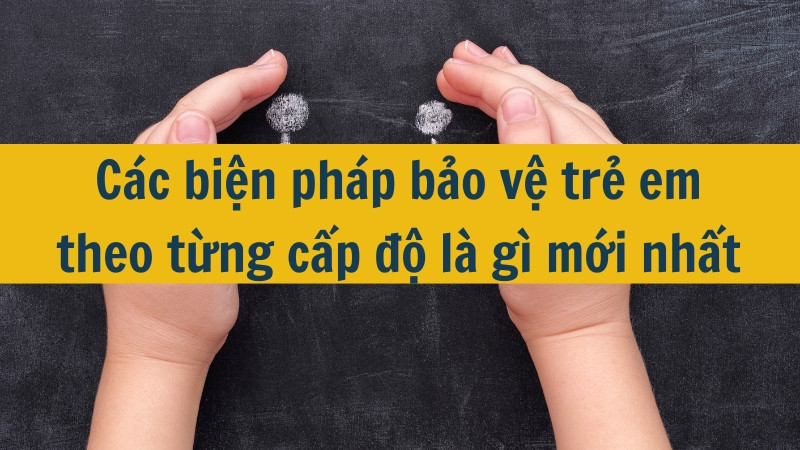
Các biện pháp bảo vệ trẻ em theo từng cấp độ là gì mới nhất 2025?
Với những quy định và chính sách bảo vệ trẻ em liên tục được cập nhật, đặc biệt là vào năm 2025, các biện pháp này đã được chi tiết hóa và phân chia rõ ràng theo từng cấp độ. Trong bài viết này, chúng ta sẽ cùng tìm hiểu về các biện pháp bảo vệ trẻ em theo từng cấp độ, cũng như sự thay đổi và cập nhật mới nhất trong các quy định bảo vệ quyền lợi của trẻ em tại Việt Nam. 25/12/2024Trẻ em là từ bao nhiêu tuổi mới nhất 2025?
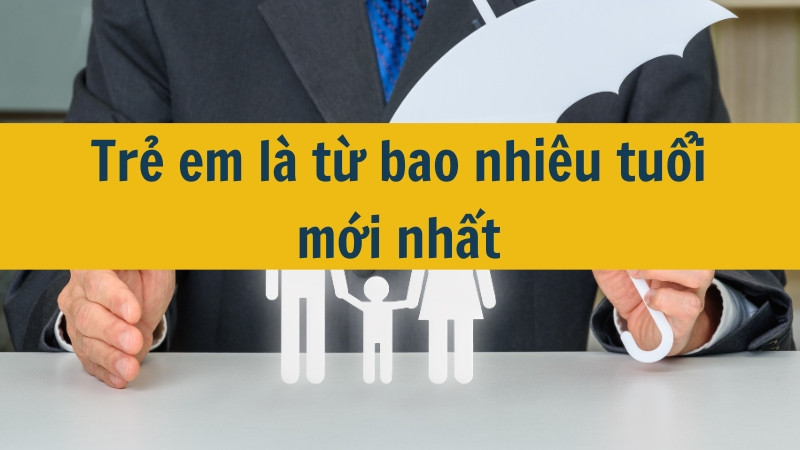
Trẻ em là từ bao nhiêu tuổi mới nhất 2025?
Trẻ em là đối tượng được pháp luật đặc biệt quan tâm và bảo vệ, không chỉ bởi sự non nớt về thể chất, tinh thần mà còn bởi vai trò quan trọng của các em trong sự phát triển bền vững của xã hội. Trong bài viết này, chúng ta sẽ tìm hiểu về quy định mới nhất năm 2025 về độ tuổi được coi là trẻ em tại Việt Nam, cùng với những thay đổi và ý nghĩa pháp lý của nó. 25/12/2024Thế nào là bảo vệ trẻ em? Các cấp độ bảo vệ trẻ em tại Việt Nam mới nhất 2025?
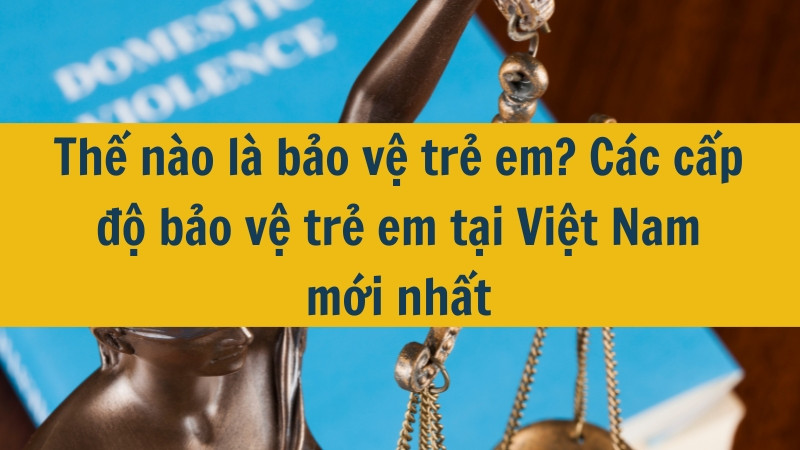
Thế nào là bảo vệ trẻ em? Các cấp độ bảo vệ trẻ em tại Việt Nam mới nhất 2025?
Trẻ em là mầm non của xã hội, xứng đáng được sống, học tập và phát triển trong môi trường an toàn, lành mạnh. Bảo vệ trẻ em không chỉ là trách nhiệm của gia đình, mà còn là nhiệm vụ của cả cộng đồng và các cơ quan quản lý nhà nước. Trong bài viết này, chúng ta sẽ cùng tìm hiểu bảo vệ trẻ em là gì và phân tích chi tiết các cấp độ bảo vệ trẻ em hiện hành tại Việt Nam. 25/12/2024Phát hiện bạo hành trẻ em, báo cho ai để tố cáo mới nhất 2025?
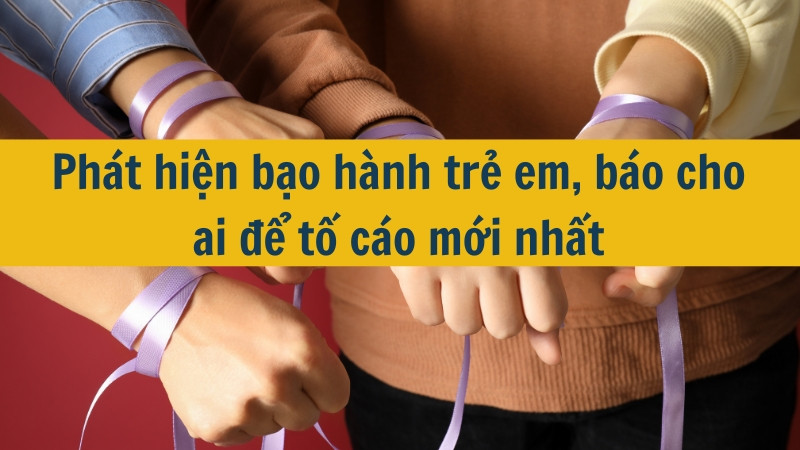
Phát hiện bạo hành trẻ em, báo cho ai để tố cáo mới nhất 2025?
Trong xã hội ngày nay, vấn đề bạo hành trẻ em đang trở thành mối quan tâm nghiêm trọng, đòi hỏi sự can thiệp kịp thời và hiệu quả từ cộng đồng cũng như cơ quan chức năng. Nhưng khi đứng trước một trường hợp cụ thể, bạn có biết cần liên hệ với ai và làm thế nào để tố cáo một cách đúng quy trình, bảo vệ quyền lợi tốt nhất cho trẻ em? Bài viết này sẽ hướng dẫn chi tiết các bước cần thiết, giúp bạn thực hiện trách nhiệm công dân trong việc chung tay bảo vệ thế hệ tương lai. 25/12/2024Bạo hành trẻ em bị phạt thế nào? Có phải đi tù không mới nhất 2025?
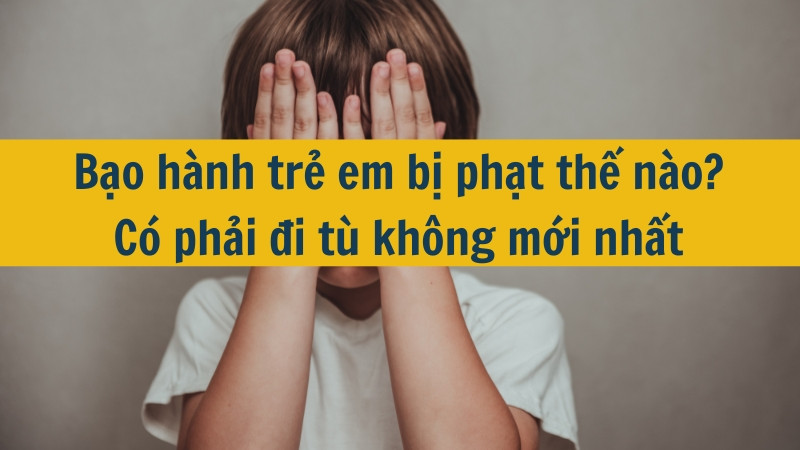
Bạo hành trẻ em bị phạt thế nào? Có phải đi tù không mới nhất 2025?
Bạo hành trẻ em luôn là một vấn đề nghiêm trọng trong xã hội, không chỉ ảnh hưởng đến sự phát triển của trẻ mà còn gây tổn hại lớn đến tương lai của các em. Vấn đề này đã thu hút sự quan tâm đặc biệt của cộng đồng và pháp luật. Theo các quy định mới nhất của pháp luật Việt Nam vào năm 2025, hành vi bạo hành trẻ em sẽ bị xử lý nghiêm minh, với những hình phạt nặng nề đối với người phạm tội. Trong bài viết này, chúng ta sẽ tìm hiểu về các hình thức bạo hành trẻ em, mức độ phạt và những chế tài xử lý đối với hành vi này, đặc biệt là việc bị đi tù và mức án cụ thể trong trường hợp vi phạm. 25/12/2024Thế nào là bạo hành trẻ em? Bạo hành trẻ em đi tù bao nhiêu năm mới nhất 2025?
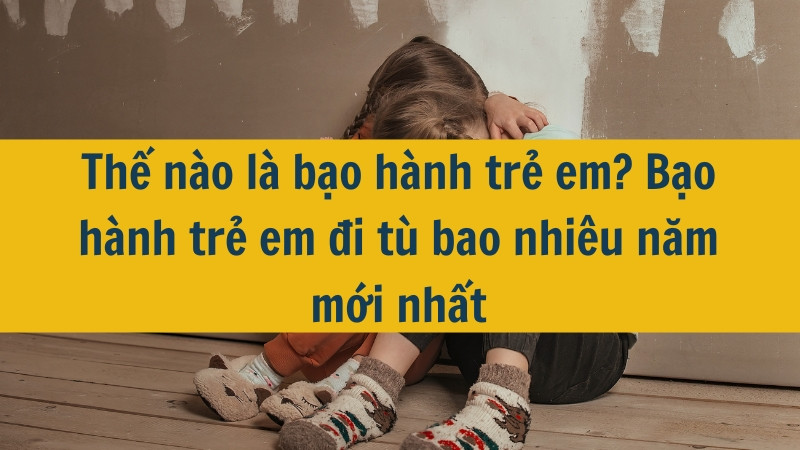
Thế nào là bạo hành trẻ em? Bạo hành trẻ em đi tù bao nhiêu năm mới nhất 2025?
Bạo hành trẻ em là hành vi gây tổn hại về thể chất hoặc tinh thần đối với trẻ, làm ảnh hưởng đến sự phát triển và sức khỏe của trẻ. Đây là một vấn đề nghiêm trọng, không chỉ vi phạm quyền lợi của trẻ mà còn là hành vi vi phạm pháp luật, có thể bị xử lý hình sự. Bài viết này sẽ làm rõ thế nào là bạo hành trẻ em và những hình phạt pháp lý cụ thể cho hành vi này theo quy định mới nhất. 25/12/2024Đăng ký tạm trú online Hà Nội nhanh chóng và hiệu quả mới nhất năm 2025?

Đăng ký tạm trú online Hà Nội nhanh chóng và hiệu quả mới nhất năm 2025?
Đăng ký tạm trú online là thủ tục đăng ký tạm trú đang được người dân sử dụng ngày càng nhiều và phổ biến. Việc đăng ký tạm trú online giúp tiết kiệm thời gian, chi phí, công sức mà hiệu quả cao. Bài viết sau đây sẽ làm rõ về thủ tục đăng ký tạm trú online Hà Nội nhanh chóng và hiệu quả mới nhất năm 2025. 08/01/2025Đăng ký tạm trú online TP. HCM nhanh chóng và hiệu quả theo quy định mới nhất 2025?

Đăng ký tạm trú online TP. HCM nhanh chóng và hiệu quả theo quy định mới nhất 2025?
Đăng ký hoặc khai báo tạm trú giúp bảo vệ người dân, đảm bảo tình hình an toàn xã hội, thuận tiện cho cơ quan chức năng trong việc quản lý dân cư và dữ liệu công dân. Các cá nhân phải tiến hành khai báo về cư trú đầy đủ và chính xác. Bài viết sau đây sẽ làm rõ về cách thức đăng ký tạm trú online TP. HCM nhanh chóng và hiệu quả theo quy định mới nhất 2025. 07/01/2025Nhập hộ khẩu bao lâu có kết quả mới nhất năm 2025?
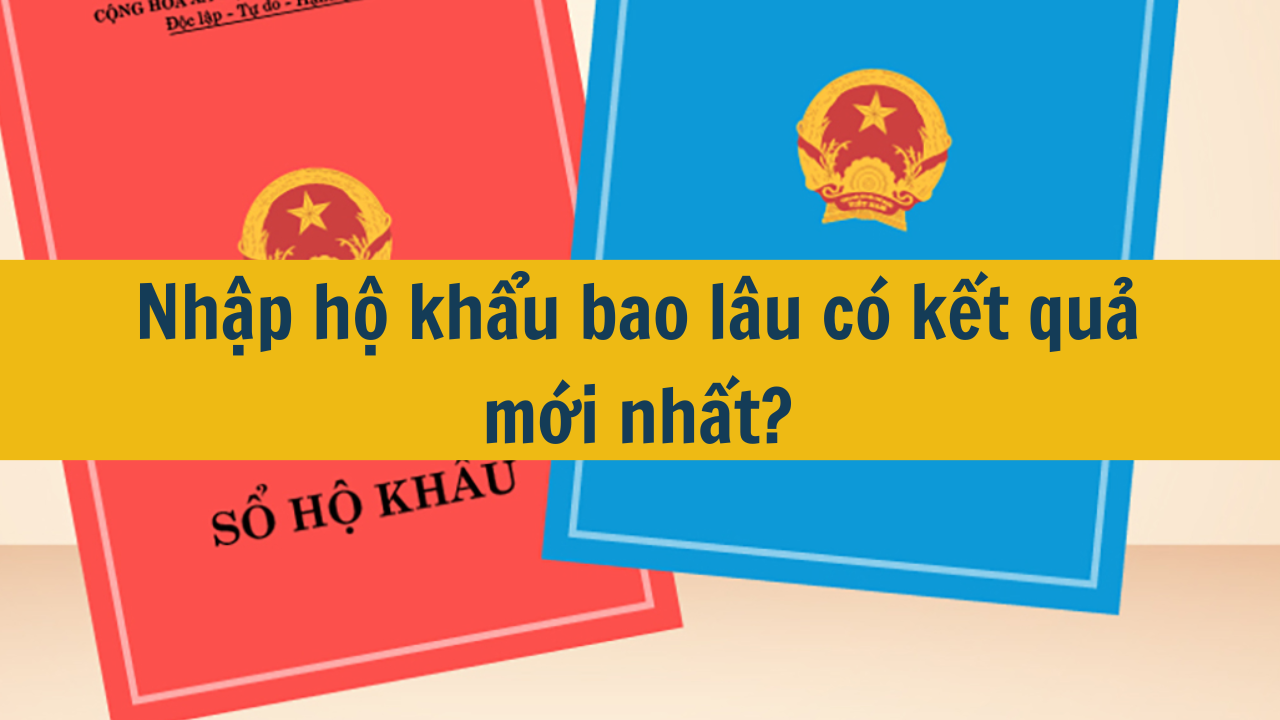
Nhập hộ khẩu bao lâu có kết quả mới nhất năm 2025?
Việc nhập hộ khẩu là một thủ tục hành chính quan trọng và cần thiết đối với công dân Việt Nam, giúp xác định nơi cư trú và quyền lợi của người dân. Tuy nhiên, nhiều người vẫn còn băn khoăn về thời gian xử lý hồ sơ nhập hộ khẩu và các yếu tố ảnh hưởng đến quá trình này. Trong bài viết này, chúng ta sẽ tìm hiểu về quy trình nhập hộ khẩu và thời gian bao lâu có kết quả mới nhất vào năm 2025, giúp bạn có cái nhìn rõ ràng hơn và chuẩn bị tốt hơn khi thực hiện thủ tục này. 27/12/2024Nhập hộ khẩu cần chuẩn bị những giấy tờ gì mới nhất năm 2025?
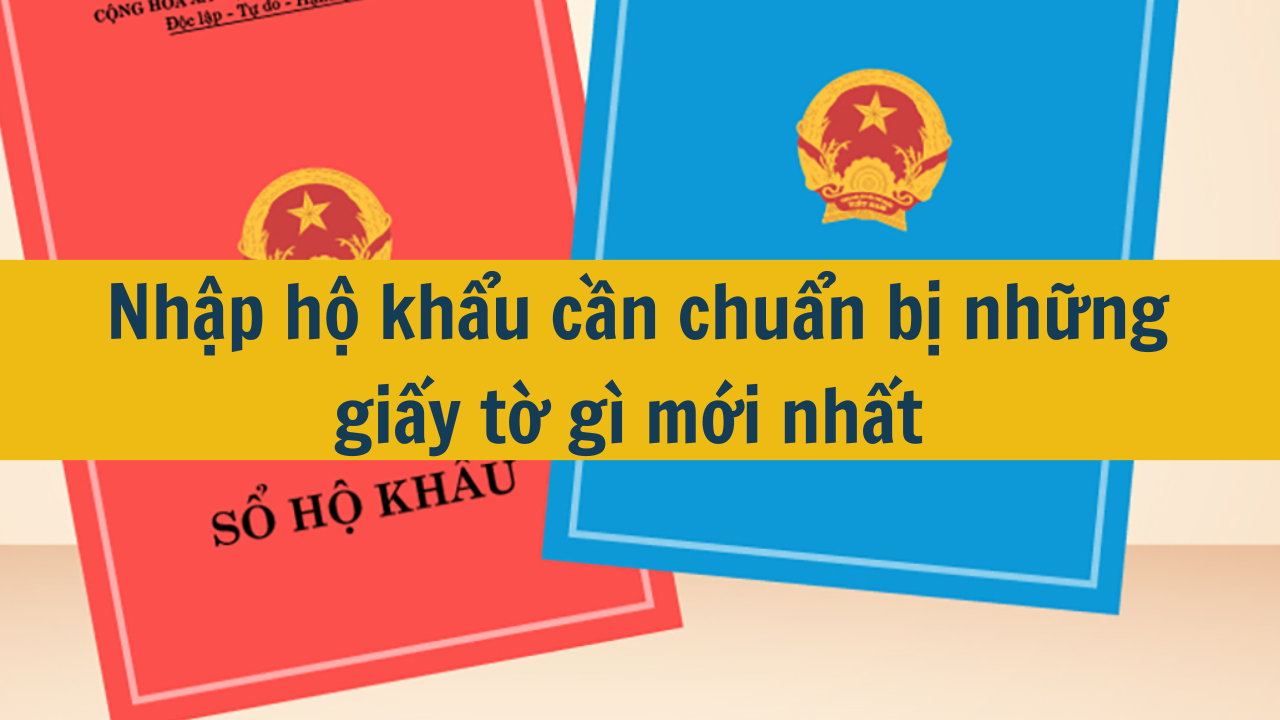

 Luật trẻ em 2016 (Bản Word)
Luật trẻ em 2016 (Bản Word)
 Luật trẻ em 2016 (Bản Pdf)
Luật trẻ em 2016 (Bản Pdf)